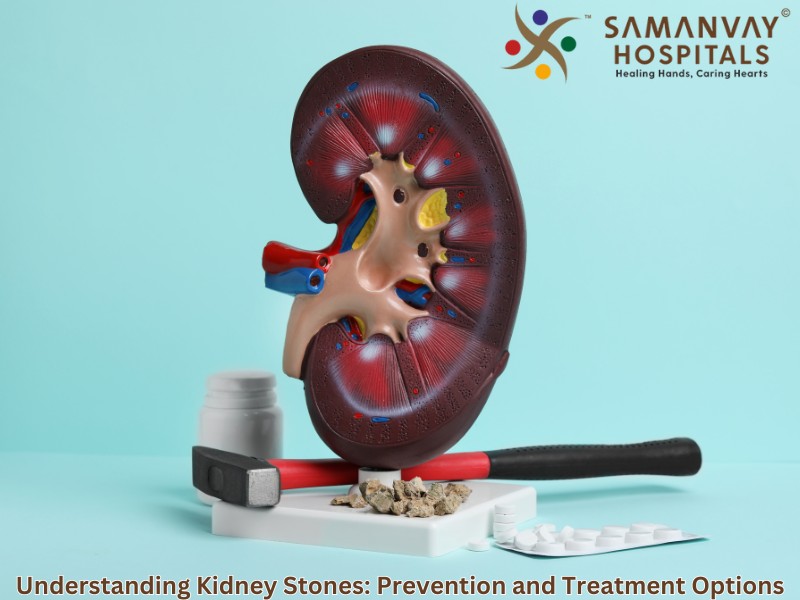
A kidney stone is a small, hard deposit that forms inside the kidneys. Its formation occurs due to the crystallisation process of some minerals contained in urine. They can lodge and stick when they are forming in the kidneys. If not treated properly, it may be the cause of unbearable pain and various complications. However, with proper prevention and proper treatment, it becomes possible to manage kidney stones.
What Are Kidney Stones?
The kidney stones are hard minerals or salts formed by crystallisation. It takes them upwards while travelling inside the urinary tract, thus causing serious pain. It follows that out of all the varieties of kidney stones, there are four most common ones such as calcium stones, uric acid stones, struvite stones and cystine stones.
Furthermore, the stones made in the kidneys differ in size. The stones can be as small as the grains of sand, or they may be relatively big compared to other stones present in the other body parts. The more prominent the stone is the more chances the patient will have some signs..
Causes of Kidney Stones
Generally, the development of kidney stones takes place under specific conditions of living or diseases related to diet or diseases. The stones may begin to develop when the urine contains very high mineral levels such as calcium, oxalate, or uric acid. Dehydration also forms another key cause for the development of kidney stones. Whenever one takes up very little amount of water, then urine is concentrated. Under such concentrated urine, mineral salts can crystallize relatively easily.
However, Some health conditions, such as obesity, gout, and some diseases related to the digestive system, also pose a tendency to increase the risk of stone development. Furthermore, certain medications and supplements are also responsible for stone formation.
Symptoms of Kidney Stones
The symptoms due to kidney stones are many. First and foremost, the person tends to have sharp stabbing pain coupled with back, side, and lower abdomen pain. Such pain tends to be in waves and even shifts as the stone moves. The other common symptoms include nausea, vomiting, and also the urine containing blood. The most common symptoms include a tendency by a person to urinate very frequently accompanied by a burning sensation while urinating.
If the stone is obstructing urine flow, then this patient might be suffering from urinary tract infection. Other symptoms of such an infection may also include the presence of fever, chills, or cloudy urine with some odd smell.
Prevention of Kidney Stones
Normally, kidney stones are a question of lifestyle prevention. Hydration prevents stone formation, it would be ideal to dilute urine by drinking plenty of water during the day and ensuring that you never let minerals harden in the urine. A broad guideline would be to keep drinking enough water to ensure that one’s urine is clear or light-coloured.
Additionally, dietary treatments may prevent the formation of some stone types. The examples for such constraints include reduction in salt intake, limitation of animal proteins subsequently preventing urate and calcium stones. Furthermore, a diet rich in calcium and low in oxalates free from spinach and nuts might avoid the formation of calcium oxalate stones.
If you ever passed a kidney stone, speak with your doctor about what you can do to prevent another one. They may prescribe a few specific dietary changes or prescription medications for you to take to prevent those stones from forming in the first place.
Treatment Options for Kidney Stones
The type and size of the kidney stone will determine what treatment to use among those options. Most small stones have passed through the urinary tract without any need for special medical treatment, but considerable liquids and some types of pain medications can be administered to help manage symptoms while passing stones.
However, if the stone is too large to pass on its own then the patient may require medical treatment. One of the more common treatments is shock wave lithotripsy which involves a procedure whereby sound waves break up the stone into smaller fragments, thereby making it easier for it to come out in urine.
The alternative is ureteroscopy. A camera-lens tube, very thin, is inserted into the urethra down to the bladder in order to find the stone. It may then be either extracted or pounded into fragments using laser energy.
The more serious cases do require surgical intervention. There is percutaneous nephrolithotomy that requires a very small incision in the back to remove large or complex stones.
The Role of Urologists
A urologist is a medical doctor professionally trained to deal with the health of the kidneys and the other parts of the urinary system. Finding the best urologist in Vadodara can assist you in getting an accurate diagnosis and the right treatment plan when you have an issue related to kidney stones. Urologists are famous for offering both surgical and non-surgical treatments, considering the case.
If the symptom of kidney stones is severe, then a visit to a urologist hospital in Vadodara is mandatory. Such hospitals are well-equipped to handle complicated cases and have specialised treatments for kidney stones. Modern diagnostic tools like ultrasounds and CT scans are also available to ascertain the position of the kidney stones.
When to Seek Emergency Care?
Sometimes, kidney stones may cause potentially life-threatening complications. For example, a complete blockage of a kidney stone may lead to kidney infection or damage. Once the condition sets in, take care at once.
Hospitals offering 24×7 emergency ICU services are always available for emergencies. In Baroda, you will find state-of-the-art equipment and well-equipped ICUs to deal with severe conditions such as infections and kidney stones. In case of high fever, intense pain, and inability to pass urine, do not delay in seeking medical care.
Conclusion
Kidney stones are very painful, though prevention and treatment are possible. Preparation to prevent future stones begins with proper hydration and simple changes in diet. If treatment is necessary, then it’s best to seek out a urologist who can establish the best approach based on your condition.
In case you are suffering from kidney stones, consider going to a urologist hospital in Vadodara for proper treatment. In cases of emergencies, ensure you are near services which offer ICU services in Baroda so that you can get prompt specialised treatment as soon as possible. Prevention and treatment of kidney stones need commitment and the right medical support. By understanding the causes and symptoms along with the various options for treatment, you can easily manage kidney stones and improve your health.



